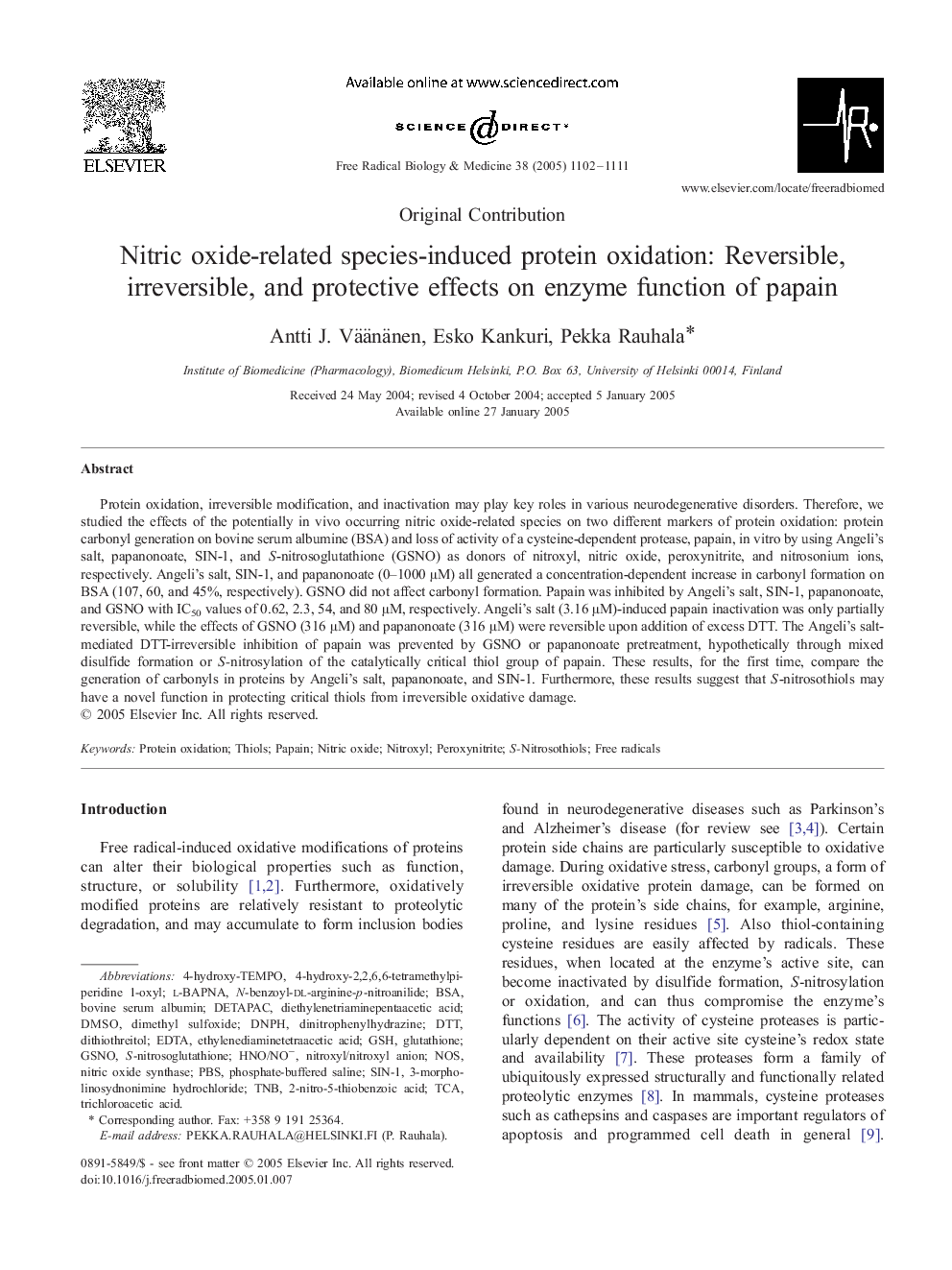| Article ID | Journal | Published Year | Pages | File Type |
|---|---|---|---|---|
| 10739896 | Free Radical Biology and Medicine | 2005 | 10 Pages |
Abstract
Protein oxidation, irreversible modification, and inactivation may play key roles in various neurodegenerative disorders. Therefore, we studied the effects of the potentially in vivo occurring nitric oxide-related species on two different markers of protein oxidation: protein carbonyl generation on bovine serum albumine (BSA) and loss of activity of a cysteine-dependent protease, papain, in vitro by using Angeli's salt, papanonoate, SIN-1, and S-nitrosoglutathione (GSNO) as donors of nitroxyl, nitric oxide, peroxynitrite, and nitrosonium ions, respectively. Angeli's salt, SIN-1, and papanonoate (0-1000 μM) all generated a concentration-dependent increase in carbonyl formation on BSA (107, 60, and 45%, respectively). GSNO did not affect carbonyl formation. Papain was inhibited by Angeli's salt, SIN-1, papanonoate, and GSNO with IC50 values of 0.62, 2.3, 54, and 80 μM, respectively. Angeli's salt (3.16 μM)-induced papain inactivation was only partially reversible, while the effects of GSNO (316 μM) and papanonoate (316 μM) were reversible upon addition of excess DTT. The Angeli's salt-mediated DTT-irreversible inhibition of papain was prevented by GSNO or papanonoate pretreatment, hypothetically through mixed disulfide formation or S-nitrosylation of the catalytically critical thiol group of papain. These results, for the first time, compare the generation of carbonyls in proteins by Angeli's salt, papanonoate, and SIN-1. Furthermore, these results suggest that S-nitrosothiols may have a novel function in protecting critical thiols from irreversible oxidative damage.
Keywords
PBS4-Hydroxy-TEMPON-benzoyl-DL-arginine-p-nitroanilideL-BAPNADETAPACSIN-1TNBS-nitrosothiolsS-nitrosoglutathioneGSNONOSGSHTCADTTDNPH2-nitro-5-thiobenzoic acid3-morpholinosydnonimine hydrochlorideBSADMSObovine serum albuminEDTAEthylenediaminetetraacetic acidtrichloroacetic acidProtein oxidationThiolsDiethylenetriaminepentaacetic aciddinitrophenylhydrazinedithiothreitolDimethyl sulfoxideFree radicalsPhosphate-buffered salinenitroxylNitric oxidenitric oxide synthasePapainPeroxynitriteGlutathione
Related Topics
Life Sciences
Biochemistry, Genetics and Molecular Biology
Ageing
Authors
Antti J. Väänänen, Esko Kankuri, Pekka Rauhala,
